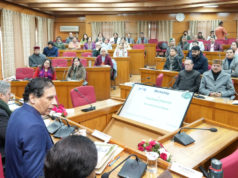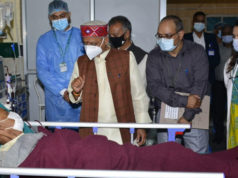Experts advise Collaborative Initiatives to Redefine the Role of De-Addiction Centers in the Community
Shimla – In a recent turn of events, the State Mental Health Authority has issued orders to close six private de-addiction centers in the Una district, following a scandalous revelation during an investigation into their operations. The crackdown gained momentum after the operator of the Bhanjal de-addiction center was arrested for supplying illicit substances in the neighbouring Hamirpur district.
These closures have brought to light the critical concerns raised by professionals such as Deepak, Founder of the Black Blanket Welfare Education Society. Deepak, who works in the areas of mental health adolescent counselling and prevention of drug abuse, emphasizes the need for careful consideration and regulatory measures rather than outright condemnation.
Addressing the recent closures, Deepak contends that it is crucial to move beyond merely shutting down centers and instead focus on crafting rules and regulations through collaborative efforts. He advocates for a dialogue with individuals working on the ground to formulate effective policies addressing the root issues.
Deepak argues that combating drug addiction requires a shift in focus towards harm reduction. He emphasizes the need for a detailed discussion on how to establish and operate Nasha Mukti Kendras, ensuring they genuinely serve the community’s needs rather than being profit-driven ventures.
One of the pressing concerns highlighted by Deepak is the profit-driven nature of many private de-addiction centers. He points out that more patients often translate to higher profits, leading to a focus on quantity over quality. This may compromise the standard of care, with some centers cutting corners on staffing and facilities, ultimately impacting the well-being of those seeking help.
Another alarming trend brought to light by Deepak is the franchise-like operation of de-addiction centers. Outsiders, often driven by financial incentives, replicate the same model in different locations without considering the unique challenges and demographics of each community. This one-size-fits-all approach may not be conducive to addressing the diverse needs of individuals struggling with addiction.
The issue of operator backgrounds is also a point of contention. Current regulations stipulate that only individuals who have overcome drug addiction can operate de-addiction centers. However, the recent crackdown on rogue centers reveals gaps in the vetting process. Some operators may not have genuinely conquered their own addictions, casting doubt on their ability to effectively guide others through the recovery process.
The financial burden placed on families seeking treatment is another critical concern highlighted by Deepak. High fees for de-addiction services, particularly in private centers, raise ethical questions about accessibility. Families already grappling with the challenges of addiction may find themselves forced to choose between their financial well-being and the health of their loved ones.
As the state takes action against the closed de-addiction centers, Deepak’s call for reform gains momentum. Experts pitching for a comprehensive review of existing regulations to ensure the ethical and effective operation of de-addiction centers. The recent scandal has underscored the urgency of collective efforts to address the societal issue of drug addiction and its treatment. In the pursuit of truth behind closed doors, advocates like Deepak continue to shed light on the complexities of the de-addiction landscape, emphasizing the need for transparency, accessibility, and a patient-centric approach.













